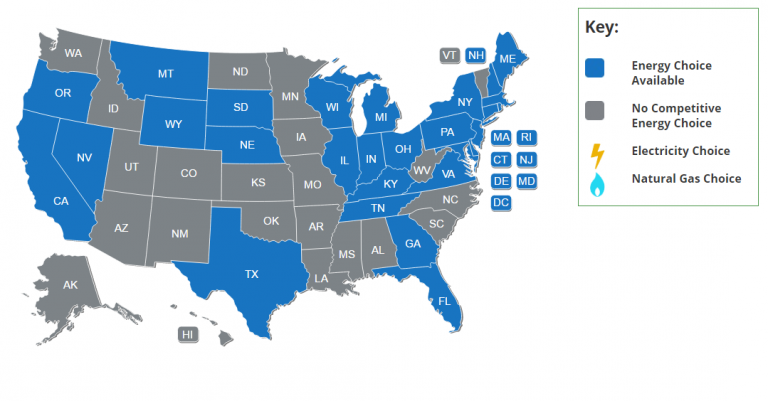Energy Choice, Customer choice.
Energy Choice is a consumer-centric program offered in a growing number of areas across the country where electricity and natural gas competition is encouraged. Traditionally electric and natural gas consumers did not have a choice as to who supplied their energy; the utility that served the region in which the consumer resided served all within that territory. Today, however, energy choice programs allow eligible customers to shop around and choose an electric/natural gas supplier that best suits their needs. That supplier may be the utility, or one of the many suppliers licensed to market in the consumer’s area.
What is the difference between an utility and a supplier?
In areas where competition is allowed, the utility is primarily a “poles, wires, and pipes” company, meaning that they are responsible for maintaining and repairing the infrastructure, delivering electricity and natural gas to consumers, and ensuring reliability. A supplier, on the other hand, is a company that sells the energy that the utility delivers. Suppliers compete in an open marketplace by offering a variety of services and incentives, and consumers chose those that most appeal to them and best meet their energy needs.

